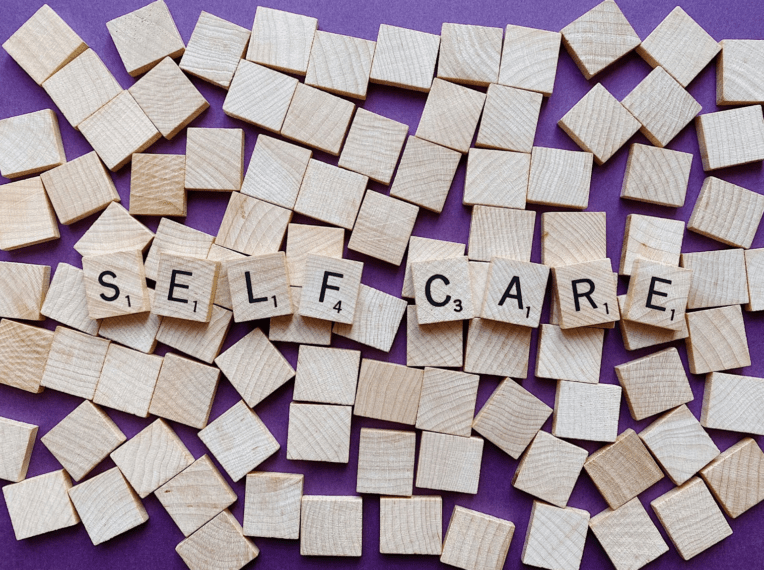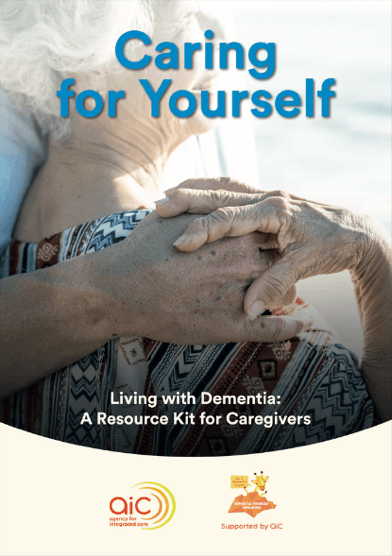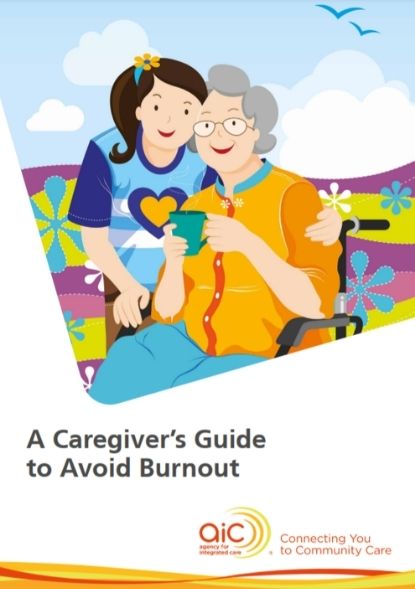Playback speed:
Always remember that part of your duty to your loved one is to take good care of yourself. Most caregivers feel that all their time, energy and care should be given to their loved ones. However, your loved one may suffer too if you do not look after yourself.

Here’s a thought to keep in mind: In the safety briefing before an aeroplane passenger flight, a flight steward tells adults to put on their own oxygen masks first before helping children put on theirs. This is because if the adults lose consciousness, the children will not be able to depend on them, and their lives will consequently be at much greater risk.
Exercise
A lifestyle that lacks physical activity is a risk factor of all major diseases. Moderate exercise, such as walking, helps as an easy way to exercise. Regular exercise not only improves your mood and appearance, but also gives you opportunities to meet new people. As much as possible, find a way to have at least some exercise done.
30 to 40 minutes of exercise 5 times a week is recommended, but regular 5- to 10-minute intervals daily is great as well.
Relaxation Techniques
Most people think relaxation is only about clearing your mind, but it is actually about observing and understanding things to overcome negativity and cultivate constructive thoughts. One can even go for a massage, a facial or out for a swim as these activities can also serve as a way to relax and meditate.

Nutrition
Sleep
Meditation
Your journey as a caregiver can be less stressful if you practise meditation that focuses on mindfulness. Think of meditation as sitting still and doing nothing.
Here are EIGHT easy steps to manage stress through meditation in 5 to 10 minutes:
- Sit up straight on a chair or a big, firm pillow.
- As you inhale, tense up your entire body – arms, legs, buttocks, fists. Scrunch up the muscles on your face too.
- Hold for two to three seconds.
- Exhale and relax (repeat twice).
- Take a deep breath. Let your belly expand.
- Exhale and relax (repeat twice).
- Breathe normally and be aware of your thoughts for five minutes. Do not give in to your thoughts or resist them.
- Think of each thought as bubbles floating up to nothingness. These thoughts may include your sad thoughts, happy thoughts, or angry thoughts.

How much time you spend meditating is not important. You can start by first spending five minutes meditating. Thereafter, when you are more used to this duration, you may attempt increasing it. Meditation can be effective in reducing stress if you practise it every day.
Meditate before your care recipient wakes up, after he or she goes to bed, or is taking a nap. You may spend only five or ten minutes meditating, but you will most likely notice its benefits after a few weeks.






